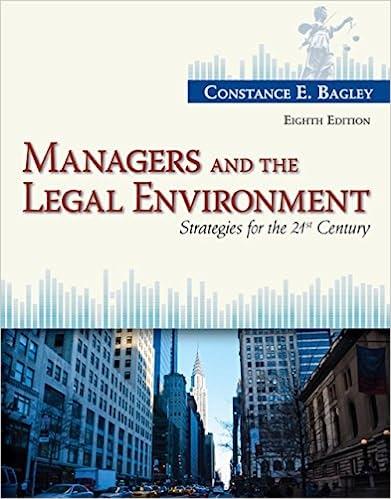Mo-Tech manufactures molds for the consumer products, automotive, medical, and computer industries. In 2007, it laid off
Question:
Mo-Tech manufactures molds for the consumer products, automotive, medical, and computer industries. In 2007, it laid off its three oldest and most skilled mold-makers- Richard Rahlf, Frank Stelter, and Scott Johnson-in a reduction in force (RIF). When these three employees began working in the 1980s, molds were made manually.
In the early 1990s, Mo-Tech began using a Computer Numerical Control machine (CNC) to help make the molds. A CNC machine is programmed by a mold-maker to product specifications and directs the production of the mold. Clients often design parts for CNC-generated models, and the CNC technology makes the process easier and faster. Consequently, there is greater need for mold-makers proficient in this technology than for those trained in traditional manual mold-making. Despite the growing popularity of the CNC machine, Mo-Tech did not require or provide its employees with formal training on it. Instead, employees were trained on the job when CNC machines were available. Rahlf practiced on the CNC machines at work; Stelter and Johnson each attended CNC training in the 1990s.
Mo-Tech claimed that its RIF was necessary to meet changing client needs and address anticipated reductions in workload and profitability. The company's stated goal
"was to shift the work that remained to the more efficient and less labor intensive CNC mold making process while reducing the total number of Class A manual mold makers employed to reflect the anticipated decrease in its workload." To determine which mold-makers to let go, three Mo-Tech managers ranked the mold-makers based on several factors, including CNC proficiency, general mold-making efficiency, and their own observations of each employee's work. Within one year after firing the plaintiffs, Mo-Tech hired new (and younger) moldmakers, and its sales increased.
Rahlf, Stelter, and Johnson claimed that Mo-Tech's stated reason for terminating them was pretextual on five grounds: (1) there was no need for a RIF, (2) Mo-Tech failed to review their performance evaluations, (3) Mo-Tech did not follow its own termination criteria, (4) Mo-Tech destroyed the evidence it relied on to make the decision, and (5) Mo-Tech changed its reasons for the termination. What must the plaintiffs show to establish a prima facie case of age discrimination? Does the employer have a valid defense? How might it have avoided this lawsuit?
Step by Step Answer:

Managers And The Legal Environment Strategies For The 21st Century
ISBN: 9781285860374
8th Edition
Authors: Constance E. Bagley





